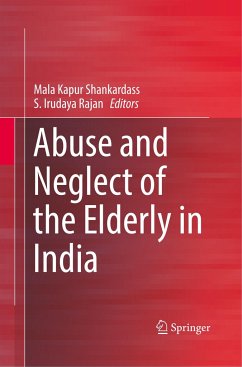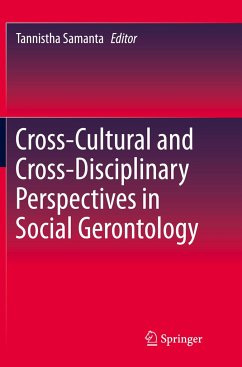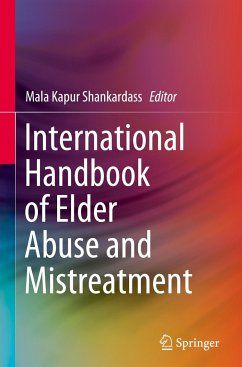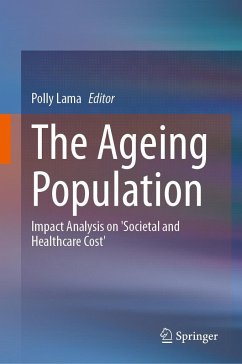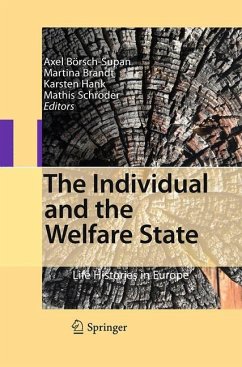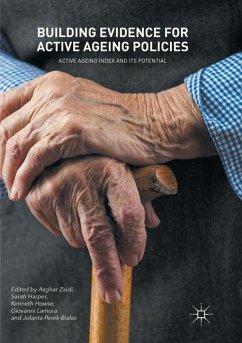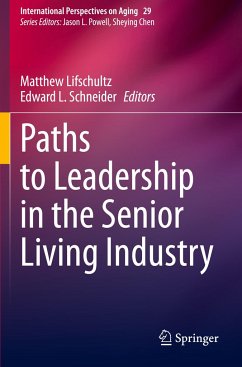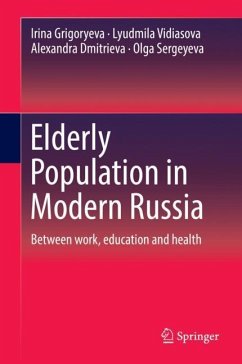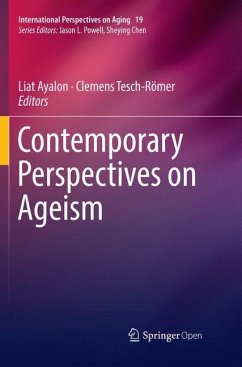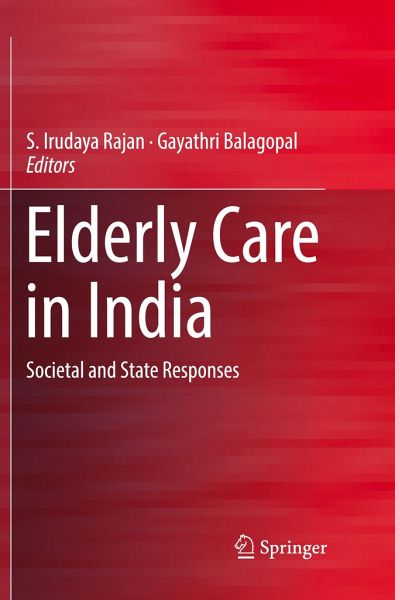
Elderly Care in India
Societal and State Responses
Herausgegeben: Irudaya Rajan, S.; Balagopal, Gayathri
Versandkostenfrei!
Versandfertig in 6-10 Tagen
76,99 €
inkl. MwSt.

PAYBACK Punkte
38 °P sammeln!
This volume highlights a range of issues underpinning elder care in India, with particular focus on the challenges that India faces in caring for the elderly. In addition to the very limited state support and near total dependence on the family for long-term social care and economic support, the changing dynamics between generations in the family structure and privatization of health care in general create new challenges that need to be addressed. Although care plays a significant role in the well-being of the elderly, there is not much research available from India. This volume draws on field...
This volume highlights a range of issues underpinning elder care in India, with particular focus on the challenges that India faces in caring for the elderly. In addition to the very limited state support and near total dependence on the family for long-term social care and economic support, the changing dynamics between generations in the family structure and privatization of health care in general create new challenges that need to be addressed.
Although care plays a significant role in the well-being of the elderly, there is not much research available from India. This volume draws on field-based evidence and the legal framework in India to understand the ways in which care is organized for the elderly and to locate the main sources of care provision. The book addresses key themes such as shrinking of traditional support base of the elderly, trajectory of old age homes in India and care arrangements for the elderly within the community. Written by academics and practitioners in the field of gerontology, this book is an informative resource for demographers, gerontologists, social scientists studying aging, and human rights and legal experts working with the aged.
Although care plays a significant role in the well-being of the elderly, there is not much research available from India. This volume draws on field-based evidence and the legal framework in India to understand the ways in which care is organized for the elderly and to locate the main sources of care provision. The book addresses key themes such as shrinking of traditional support base of the elderly, trajectory of old age homes in India and care arrangements for the elderly within the community. Written by academics and practitioners in the field of gerontology, this book is an informative resource for demographers, gerontologists, social scientists studying aging, and human rights and legal experts working with the aged.



